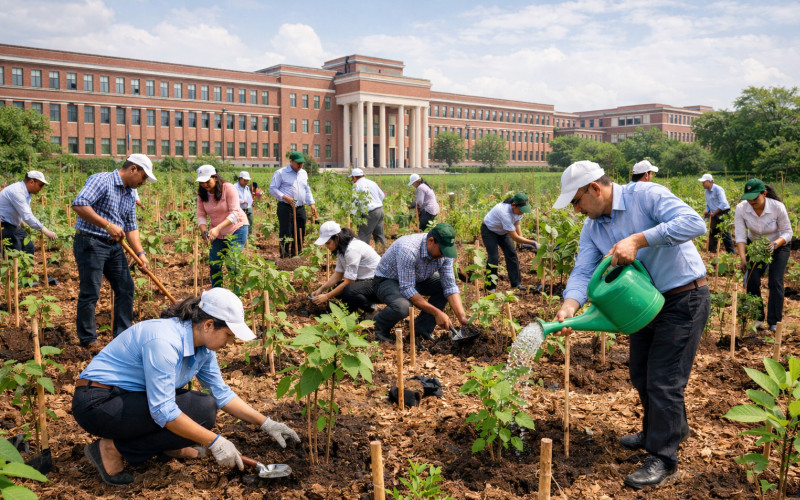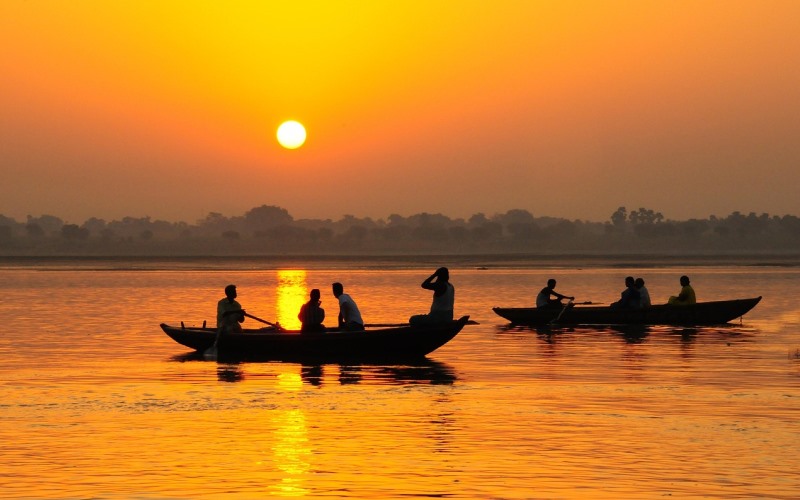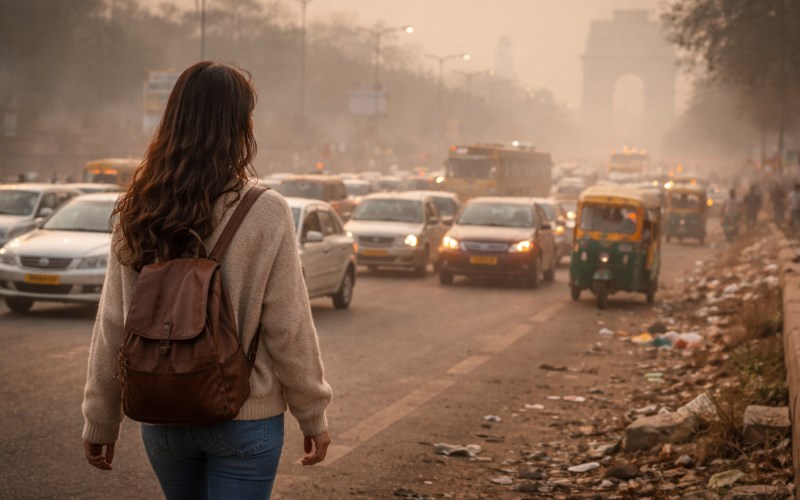
2020 was an extraordinary year that walked us through the critical stages of CoVID-19 outbreak. The elements of human existence will never go back, and history will separate the CoVID and post-CoVID times. 2020 will not just be remembered for the pandemic and the precious lives lost. It will also be a cause of celebration for humanity to have survived a lethal virus.
While struggling to keep pace, and shadowed over by the gravity of CoVID circumstances, the difficulties faced by our nation and the need to uphold and maintain the standards and quality of life demanded a feeling of commitment and obligations across all levels. It needed for us to ensure that we continue to work in the interest of the nation, while also keeping ourselves and everyone safe around us.
Truly, there can never be a cap to human aspirations. I had the task at hand to teach Environmental Science to first-year students of University of Delhi online. I believe my educational background instilled in me the qualities required to meet the rigour of the demanding course – Environmental Science (EVS) that not only supplemented the quest for knowledge but also provides a strong foundation for future research.
Many have shared the lessons learnt during the pandemic. For me, the current pandemic has proven to be a catalyst for self-directed, newly emerged avenues for learning. It came as a blessing in disguise for educators towards developing a more effective design of blended learning. We have always known that virtual mode of teaching and online resources can serve more effectively as a possible alternative way of learning.
However, this became a buzzword during the unprecedented times of the pandemic; and came as a new experience for both teachers and students thereby requiring new set of skills. It is said that the youth of nation are the force to be reckoned with. It was a perfect time to learn and invest time, which was equally challenging as well as an encouraging shift. Most educators on their own developed the capacity for undertaking online classes to keep in tune with classes during pandemic. The current pandemic helped in reconstructing the entire paradigm of our education system.
Environmental education can pave the way to a sustainable future. As inquisitiveness of the subject resonated with my own curiosity, I have always worked to increase my cognizance, updating myself with latest research all the time. This in turn helped me to bring better research to the classroom while training and educating undergraduate students. Having been an educator for more than six years, the experience with online classes was an initial tough terrain for me.
Performing multi-tasking such as researching and developing study material while brushing up technical skills with help of some my more tech savvy students was an interesting experience. Teachers are lifelong learners and this was realized abundantly during the pandemic for all of us. So much has changed in the last year and so soon that the way I taught had to be transformed and constantly updated. Online teaching certainly demands much more, new learning, deep rooted methods to deliver best to the students and ensuring we keep them interested.
Unlike face-to-face teaching, learning over laptops and smart phones for students also came as a challenge. There were compromises made, the push of online teaching spaced out the students into different zones. But soon the students and the teachers adapted and adopted the new normal.
The e-learning for the subject of EVS extensively demands concerted effort to re-design content and goes far beyond replicating offline lecture through video capabilities. One resembling concern raised by teachers and students was that of unstable network connections. Others in remote, rural setups – without uninterrupted broadband services – were not able to participate in online classes altogether.
There were others who faced difficulty due to economic concerns and lack of availability of basic infrastructure required to join and participate in online classes. Amid such concerns and technical glitches, we once again realized the importance of the Internet and web technology, and its role in education and the development process.
Even then, the subject of EVS additionally requires practical (in person) field visits to teach and learn from and about the environment. This is required to sensitize youth on various environmental issues thereby helping them appreciate nature and natural resources. It also helps students understand the need to mitigate environmental degradation by fostering teamwork and ecological sensitivity. An innovation in the form of virtual field visits can and is being organised but certainly deprives students the real exposure to field conditions.
As per my experiences, the biggest hurdle while ongoing complete virtualization of education is a dire need to develop critical thinking skills for quality learning and inculcate the spirit of social responsibility towards the much realistic non- virtual world.
For meeting the current demands during pandemic, virtual teaching has been implemented as a viable solution along with its limits and limitations. With continuous momentum towards the digital transformation, we should use it as a bridge to get back to better, sustainable and greener growth. We need to make pioneering attempts for a sustainable future. Trained youth and an educated society is a vital component for comprehensive recuperation and the accomplishment of the Sustainable Development Goals (SDGs).
And with the lessons now learnt, we need a more profound arrangement and longer spotlight on issues of hybrid and blended learning. Collaborated efforts are needed to enhance the quality outcomes and bring better teaching tools to the classroom – real or virtual. There should be lasting development plans at institutional and state levels to consistently update and disseminate technology and frameworks, including a push to perfect the integration of the virtual learning process. We cannot predict the future, but we can and certainly must be prepared for it.




Mam This is awesome . I really appreciate your hardworking personality for adapting new methods and spreading the positivity of online teaching among the students.